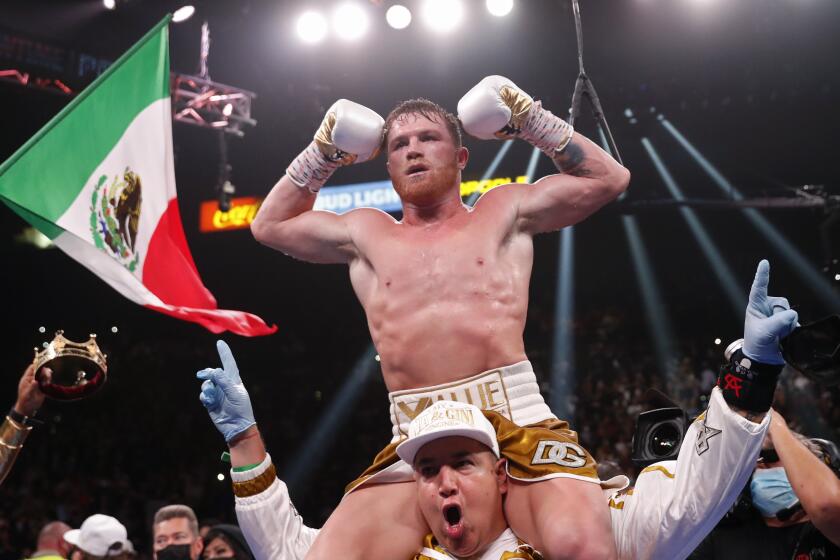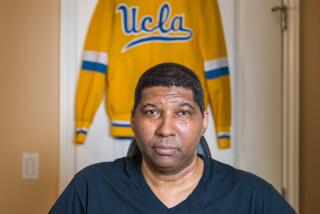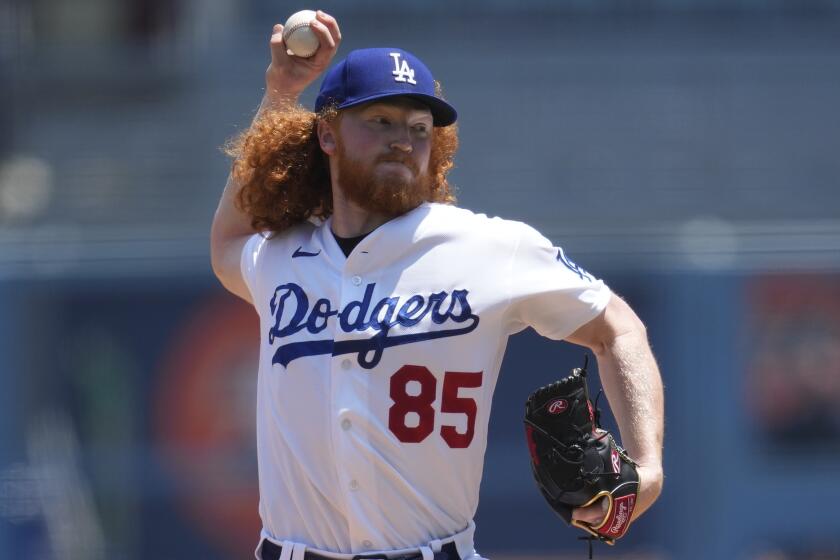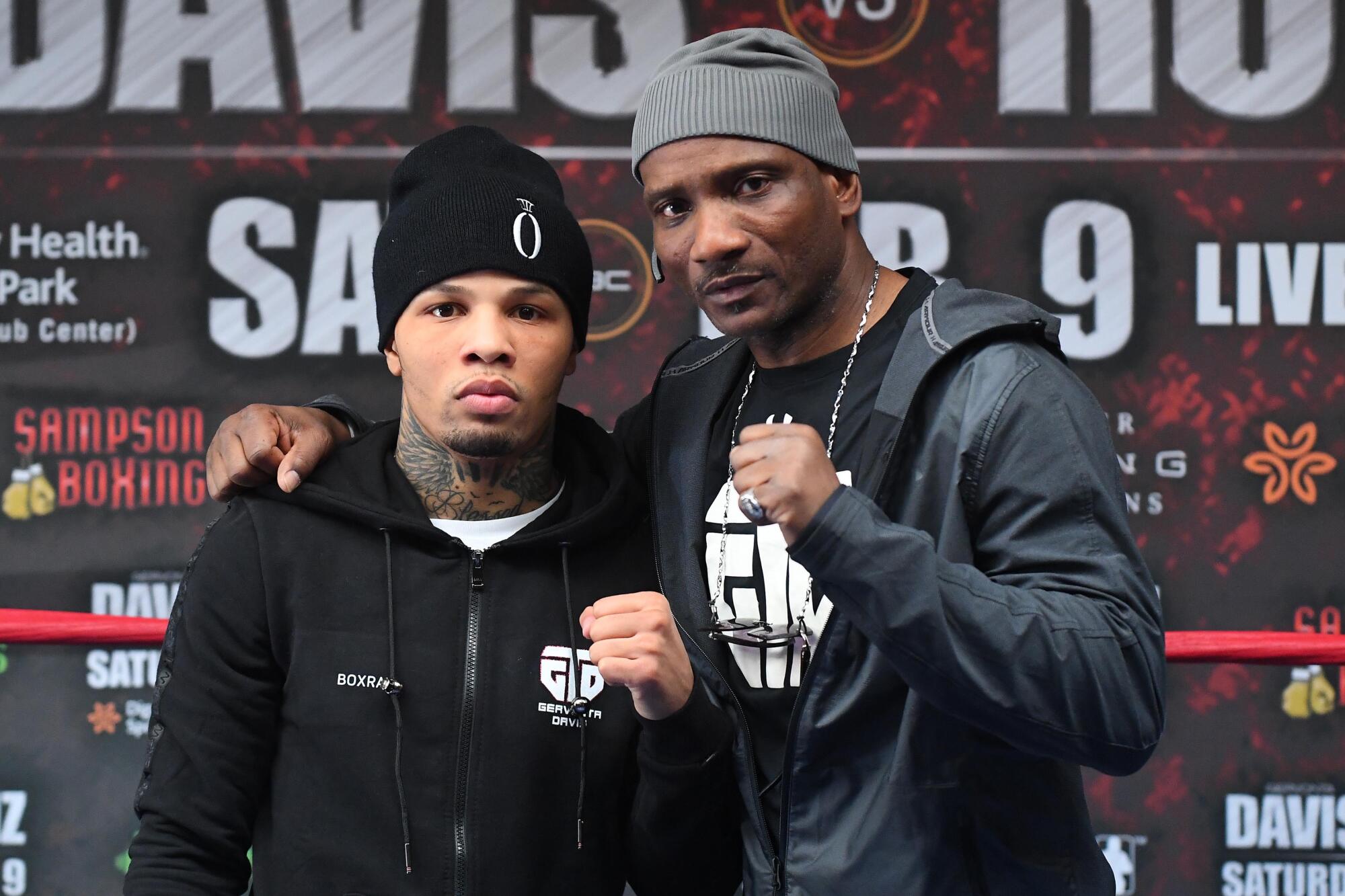
Calvin Ford was mid-conversation when his phone buzzed. He glanced at the caller ID.
“One of my co-defendants,” he joked.
Ford chuckled.
He’s 57 now, more than three decades removed from racketeering and conspiracy charges that sent him to federal prison.
Ford maintains a slender build and youthful appearance, roaming L.A. Live on a recent day in a black stocking cap, blue hoodie, gray basketball shorts and white leggings. He never removed his sunglasses, not even when he was indoors.
With a warm smile and high-pitched laugh, he didn’t bear much of a resemblance to the tortured fictional character that was based on him.
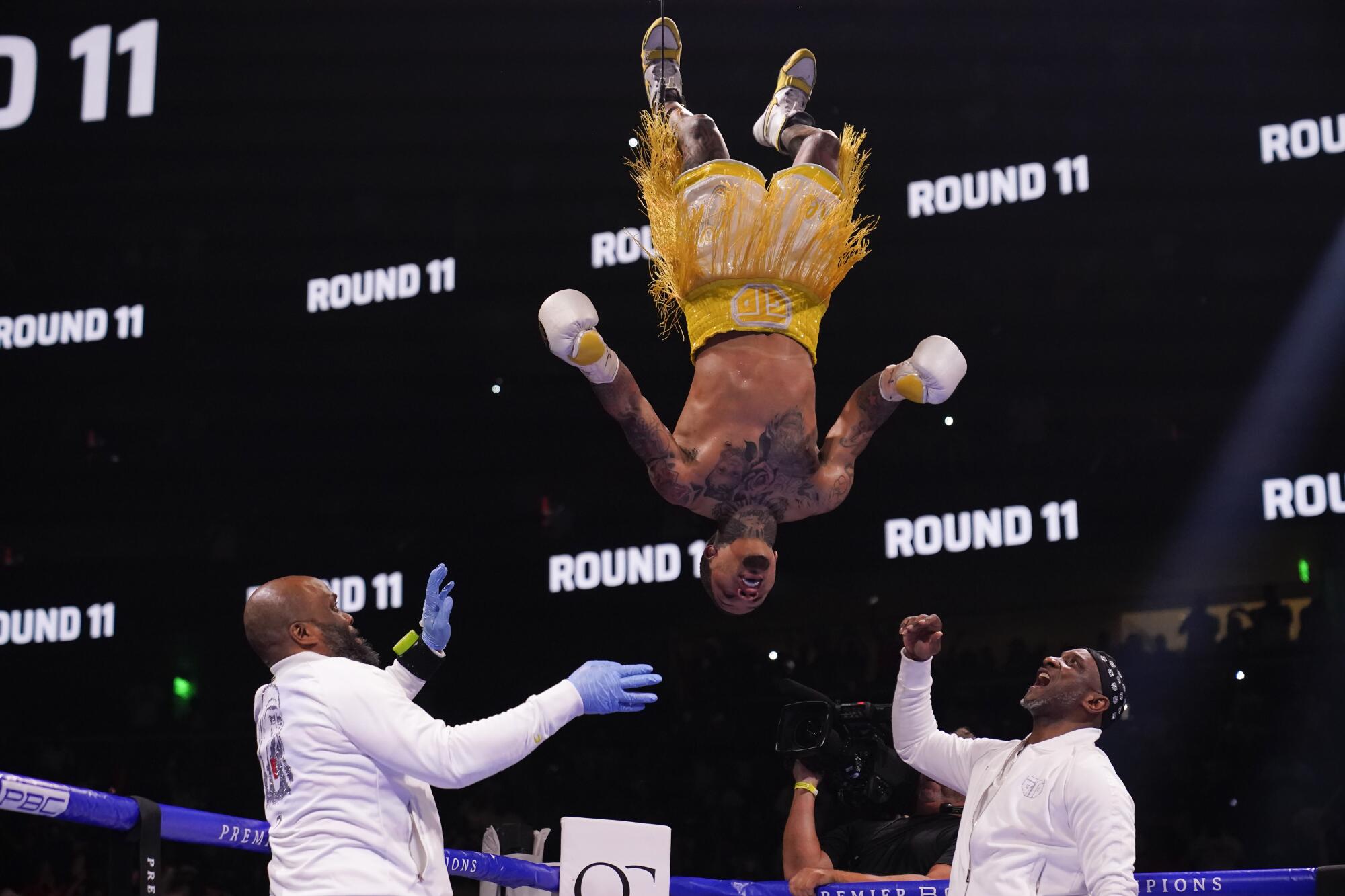
A former major player in Baltimore’s drug trade who became a boxing instructor for at-risk youth on the city’s west side, Ford was the inspiration for Dennis “Cutty” Wise of the HBO series “The Wire.”
While “The Wire” was characterized by its realism, Ford’s story is defined by extremes. There’s more heartbreak. More death. Triumph too.
One of the boys who trained under Ford while “The Wire” was in production has become a world champion. His name is Gervonta Davis and he will defend his lightweight title at Staples Center on Sunday against Isaac Cruz of Mexico. Ford will be in his corner as one of his trainers.
Ford has visions of the 27-year-old Davis transcending his sport and transforming the crime-infested community in which he was raised.
“He has purpose that we don’t know yet and he doesn’t understand yet,” Ford said.
Similar to how Ford once didn’t know his.
In the 1980s, Ford was the lieutenant of a drug distribution ring in Baltimore led by Warren Boardley and Christopher Burrows. While his made-for-TV alter ego was an enforcer, the real-life Ford was the brains of the operation. Ed Burns, a co-creator of “The Wire,” was a police detective who investigated Ford’s gang.
“I ran the business,” Ford said. “Make sure everything was there. Make sure everyone was doing what they were supposed to be doing. Paid everybody.”
Size matters in boxing, and that reality is something of which Canelo Álvarez should be mindful as he makes a difficult decision about his career.
One of the gang’s enforcers was Reggie Gross, a heavyweight boxer whose resume includes losses to Mike Tyson, Frank Bruno and Razor Ruddock. Gross is currently serving a life sentence for three murders to which he pleaded guilty in 1989.
Ford was sentenced to prison in 1988. He spent the next 10 years behind bars. When he was freed, he vowed to turn around his life, working his way from a dish washer to manager for Phillips Foods.
“It was based on structure,” Ford said. “Just the same concept that I had when I was in the streets.”
A search for a place where he could train his then-teenage son led him to the Herring Run Recreational Center. Under Baltimore’s Department of Recreation and Parks, the center’s boxing classes moved to their current home in the Penn-North community. Ford was hired to run the program.
One of the children who came to the Upton Boxing Center was a 7-year-old Davis, who worked with Ford’s son, Quaadir Gurley.
When Gurley moved to New Jersey with his mother, he told his father, “I need you to stay with Shorty [Davis] because you’ll be a good role model for him.”
“Ever since then, he was glued to my side,” Ford said of Davis.
Davis had bounced around in foster care and group homes, as his mother was a drug addict and his father was in prison. At the time he wandered into the Upton Boxing Center, he was living with his grandmother.
“Calvin has always been that male figure in my life,” Davis said. “I think a lot of kids who were coming up around the time I was coming up needed that father figure. I really wasn’t getting that at home.”
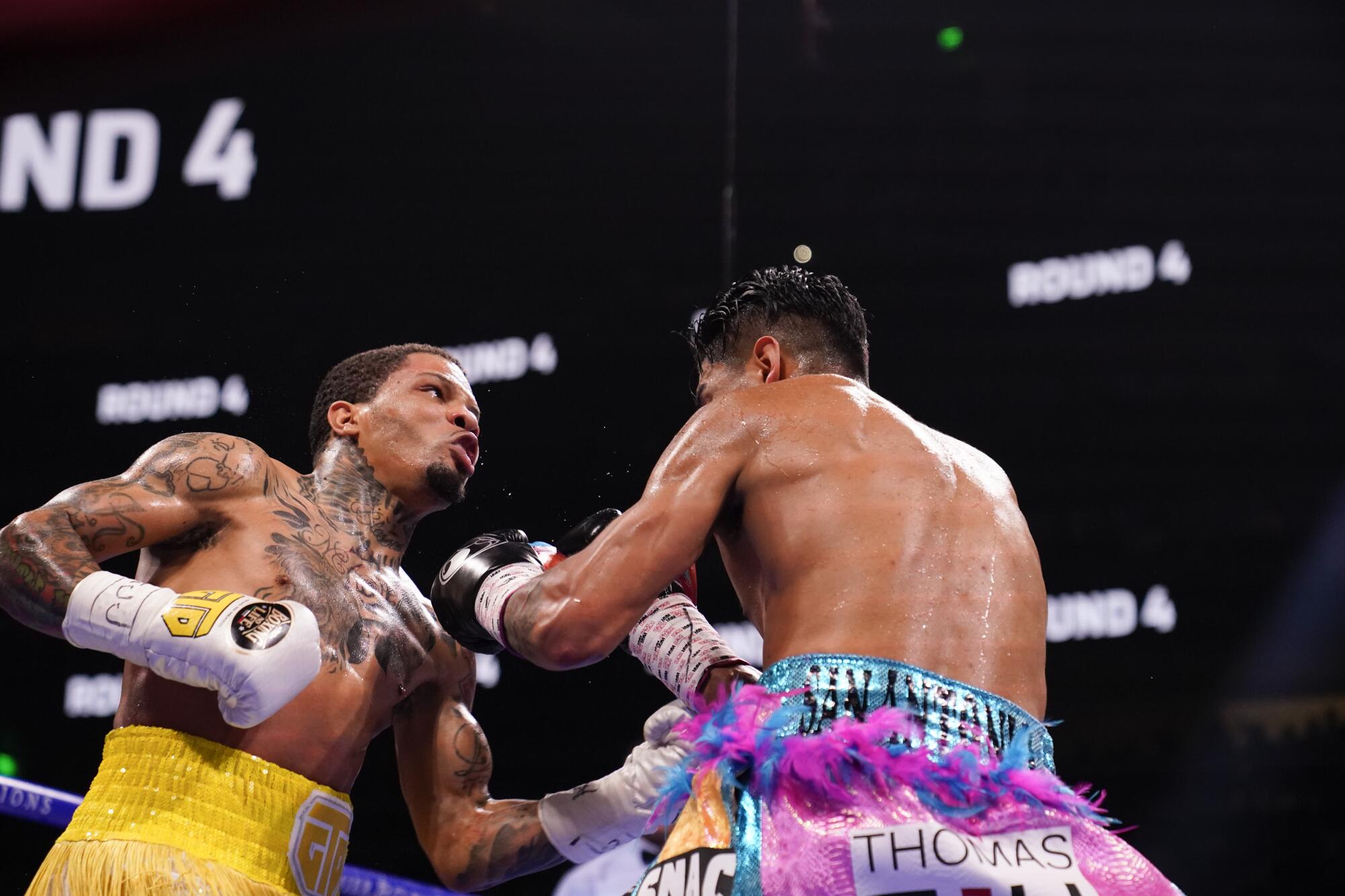
Davis wasn’t the most gifted fighter Ford mentored, but he was the most focused, an invaluable characteristic in a community in which the streets always were calling.
Ford recalled the fighters he lost.
Ramone Manley, his first Silver Gloves national champion, was murdered. Ronald Gibbs, a nationally ranked amateur with Olympic dreams, was stabbed to death while defending his sister. Angelo Ward, a super featherweight, was shot outside his home.
“I feel it sometimes, even sitting here talking to you,” Ford said.
The tragedies shaped Davis, who considered these fighters older brothers.
“I was younger than those guys,” Davis said. “It was just learning from their mistakes. I know what to do and what not to do. I was traveling when I was 10, so I’d seen bigger things than Baltimore. My mindset was a little different from everyone else’s. Everyone else’s was to remain in the streets. I was so focused on getting out of the hood and the streets. My focus was boxing. That was my escape. I kept that path and stayed close to my coaches. We’re here now.”
Especially painful was the murder of Gurley, Ford’s son. He was shot to death in New Jersey in July 2013, just one day after Davis knocked out Rafael Casias to improve to 4-0.
“His son trained me and I had a tight bond with his son,” Davis said. “His son was a real-deal guy. I think that I got that energy from his son and then it carried on from the son to the father.”
As Davis spoke, Ford sat next to him and nodded quietly.
Now 25-0 with 24 knockouts, Davis has credited Ford for saving his life. Ford said the opposite is also true, that Davis and others like him have saved his life.
“The kids kept me straight,” Ford said. “I can’t tell a kid to not do something and do it myself. So I had to keep my head screwed on straight.”
His message to Davis is one based on a perspective he gained over his unusual journey.
“Live your life to the fullest,” Ford said. “You only have one life. Be kind while you’re doing it.
“You want people to love you or fear you. I’d rather have people love me than fear me because if they fear you, they’ll do something to you.”
More to Read
Go beyond the scoreboard
Get the latest on L.A.'s teams in the daily Sports Report newsletter.
You may occasionally receive promotional content from the Los Angeles Times.

